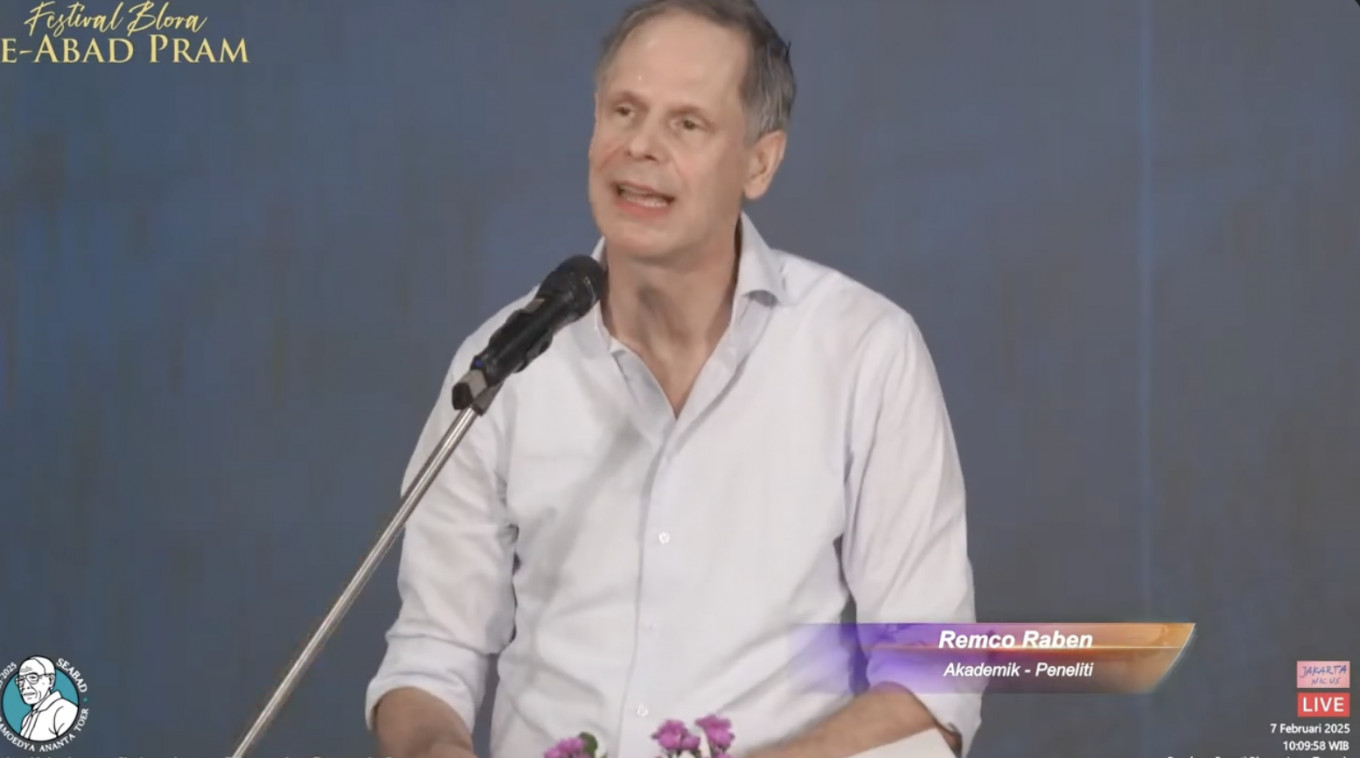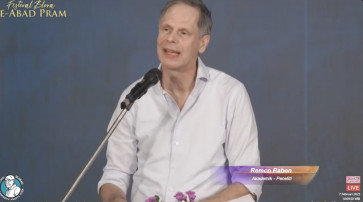Popular Reads
Top Results
Can't find what you're looking for?
View all search resultsPopular Reads
Top Results
Can't find what you're looking for?
View all search results'Indonesia, the world should appreciate Pramoedya more'
I think he can be influential at various levels. In his more didactic and non-fictional writings, his message about facing the national past in a truthful way is very important, as history is often being misused to serve political needs. His call for fighting what he calls the kampung culture of Indonesia, the deep-rooted patriarchism, hierarchical attitudes and lethal violence against brothers, is a message that remains relevant.
Change text size
Gift Premium Articles
to Anyone
O
ne of the keynote speeches delivered during the centennial of writer Pramoedya Ananta Toer in Blora, Central Java, last week was from Remco Raben, a professor in colonial and postcolonial literature and cultural history at the University of Amsterdam. In his speech, Raben paid tribute to the writer's tumultuous life, a story of grit and perseverance, which he deemed to be as powerful as some of his best fiction. Raben talked to The Jakarta Post's Radhiyya Indra and M. Taufiqurrahman shortly before leaving Blora late last week. Below are excerpts from the conversation.
How influential or relevant is the literary work of Pramoedya for Indonesia or the world?
I think he can be influential at various levels. In his more didactic and non-fictional writings, his message about facing the national past in a truthful way is very important, as history is often misused to serve political needs.
His call for fighting against what he calls the kampung (village) culture of Indonesia, the deep-rooted patriarchism, hierarchical attitudes and lethal violence against brothers, is a message that remains relevant.
In the context of his novels, he wrote about the complexities of Indonesian identities and a deeply rooted empathy with the downtrodden. At a biographical level, his relentless energy to write and investigate is an example to us all. His individualism and tenacity are a great source of inspiration. Also, his tragic life experience in the prisons of the Dutch, of Sukarno and for more than 14 years of imprisonment and forced labor during the New Order, makes us aware that justice has not yet been done to the thousands of victims of execution and imprisonment of the Suharto regime. Pramoedya’s call for justice and truth is a call to the world that is increasingly mired by continuing injustice and malicious information.
Pram was also full of contradictions, which is very interesting. He's looking for historical truth, but he also doesn't use strictly historical methods, he said well, maybe the facts are not entirely right, but the spirit is right. I'm not sure why, but that might also come from his Javanese background.
It’s interesting because the traditional view of the Javanese is they are submissive. How do you think he arrived at that position of always contradicting things?



















